Parents' search for cancer-stricken son who disappeared fuels discussion over China's pricey healthcare
ZHANGJIAJIE — Tang Chunwu set off from his room in a ramshackle inn just after sunrise, the beginning of Day 92 in his search for his son.
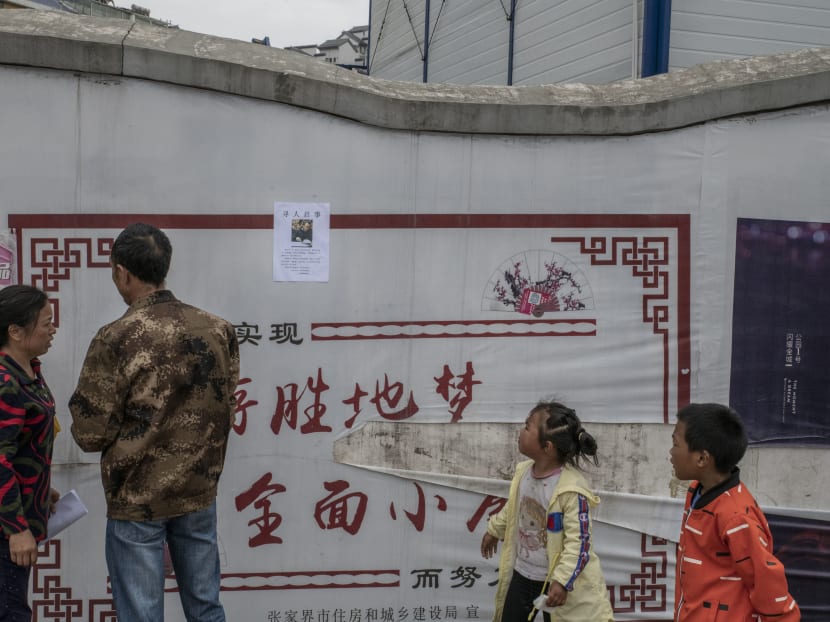
Liao Mandong and her husband, Tang Chunwu, in Zhangjiajie, China, looking for their son, Tang Gongwei, a pharmacist who disappeared after learning he had stomach cancer. Millions in China cannot afford treatments for serious illnesses, and insurance coverage of major illnesses like cancer is low.
ZHANGJIAJIE — Tang Chunwu set off from his room in a ramshackle inn just after sunrise, the beginning of Day 92 in his search for his son.
Winding through a route calculated to take him through the busiest parts of town, Mr Tang stopped to put up posters asking if someone, anyone, had seen the round-faced young man with glasses. The poster described his son in clipped phrases: Named Tang Gongwei, 26 years old, about 1.7m tall.
It also described why he went missing. He discovered he had stomach cancer. He didn't want to burden his parents. His only option, he felt, was to vanish.
Mr Tang's quest has captivated China in part because of a cruel irony: His son was not a common labourer like him but a pharmacist, working in China's vast health care system. If anybody could get treatment, the thinking goes, it is someone like him.
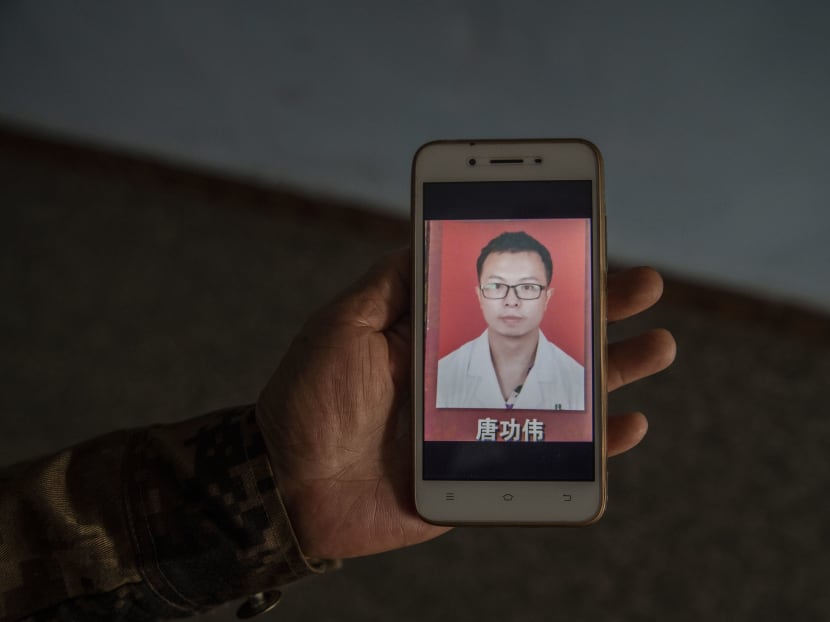
"Manual labour was tough and tiring, but nothing compares to the struggles right now," said Mr Tang, a 55-year-old farmer whose son has his chin and cheekbones.
Nearly a decade after the rollout of an ambitious US$130 billion (S$177.74 billion) health care reform plan, millions of people cannot afford the treatments they need for serious illnesses. Insurance coverage of major illnesses like cancer is low, and many cancer-related drugs are not covered at all. Local governments, lacking cash, sometimes fail to reimburse patients.
"China's health care system must find a way to reduce its costs," Li Ling, an economics professor at Peking University who advises China's Cabinet on medical reform, said. "It is too expensive now and has surpassed what most ordinary people can afford."
Cancer diagnoses in China are soaring, and survival rates are low. About 4.3 million cancer cases were diagnosed in 2015, or almost 12,000 cases a day. That is nearly double the rate five years before, according to official figures.
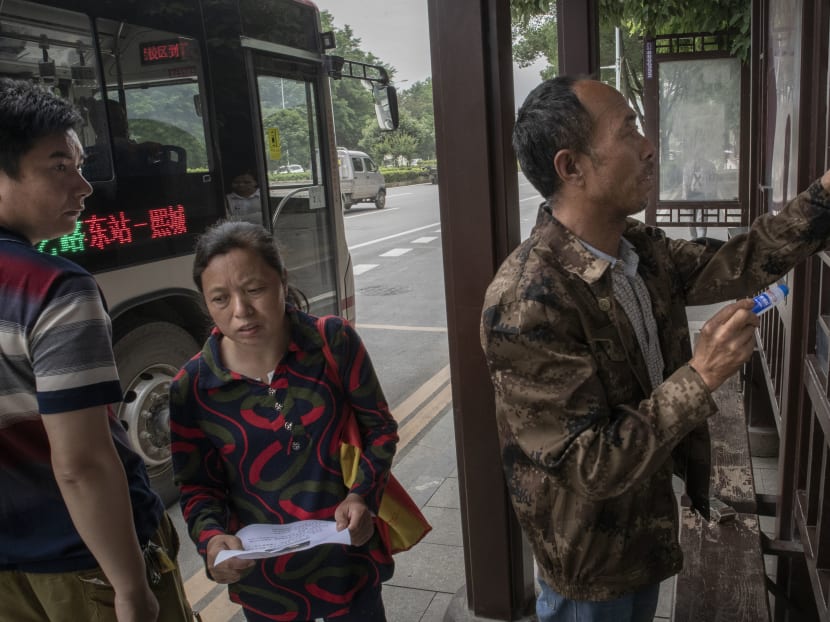
In rural China, where about 41 per cent of the population lives, only about one-fifth of cancer patients survive five years past their diagnosis. In urban areas, about 40 per cent survive, according to China's National Cancer Prevention and Research Center. In the United States, by comparison, more than two-thirds survive through that period.
Tang Gongwei's disappearance was widely reported in the Chinese media, with some outlets mistakenly saying that he was a doctor. The fact that he was a medical professional fueled the discussion about him online, and many internet users said they would also have left because they didn't want to burden their own parents.
Like many other Chinese children, Tang Gongwei grew up without siblings. Local officials enforced family planning rules zealously, tearing down houses of couples who had more than one child, according to his mother, Liao Mandong.
"At least if you gave birth to a girl, you were allowed to have another one," she said. China's one-child policy allowed rural residents to have a second child if the first one was a girl, unlike their counterparts living in urban areas.
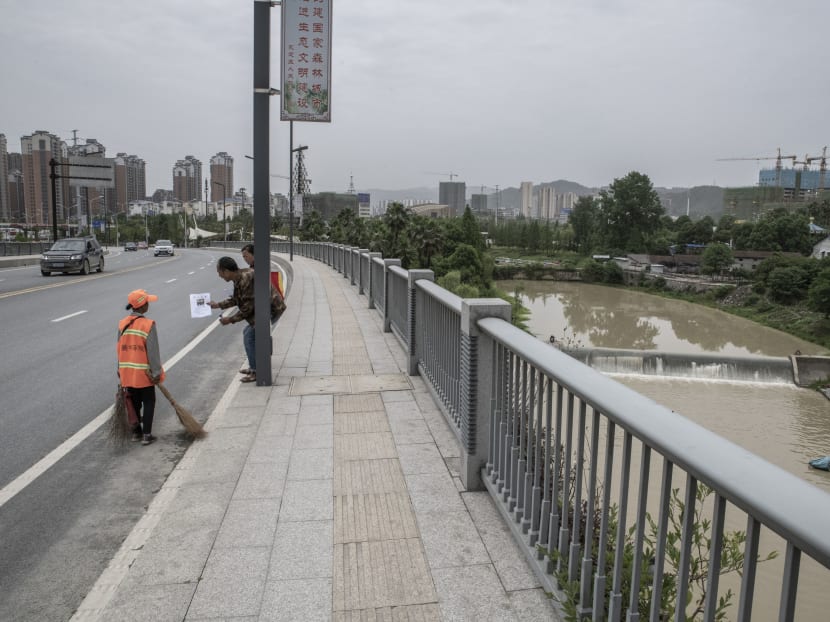
From early on, the Tangs found their son to be introverted and studious. He enrolled in the prestigious Yali High School, one of China's top high schools, in the city of Changsha.
After graduation, he joined a public hospital in the city of Hengyang as a pharmacist. He had medical insurance from the hospital, but earned just over US$300 a month.
On Feb 15, Tang Gongwei told his father that he had stomach cancer. He apologised repeatedly to his parents for adding to their burdens. Mr Tang, who earned just over US$150 a year farming rice, told him not to worry, saying he was willing to borrow money.
But Tang Gongwei could not live with that. On Feb 21, he placed a letter on top of his pillow. In it, he asked his parents for forgiveness.
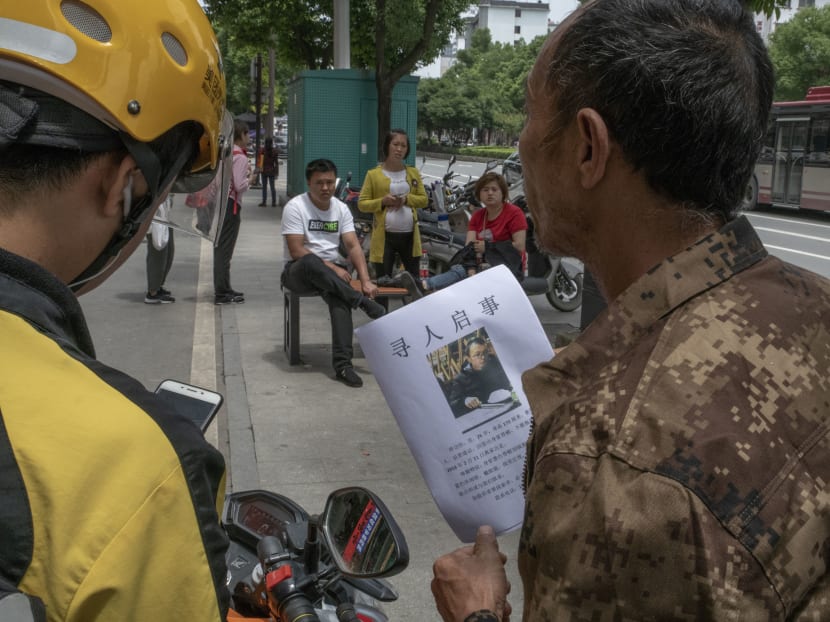
"If I leave my parents not only overcome with the grief of losing their son but also struggling financially in their twilight years, then it's a sin that can't be forgiven," he said. "Even if I die more than 10,000 times."
Mr Tang later discovered that his son had bought a train ticket to Zhangjiajie, a popular tourist spot in central China with the ethereal mountain landscape that many in China say resembles the Hollywood blockbuster "Avatar." He and his wife scoured parts of the city but to no avail.
The only clue that his son was still alive came when his uncle dialed Tang Gongwei's mobile number on May 16. Someone picked up the phone, which was previously turned off. There was noise. Then nothing.
When the Tangs heard that, they rushed to Zhangjiajie again. It was the sixth time in three months that they had come to the city. His son must still be here, Mr Tang felt.
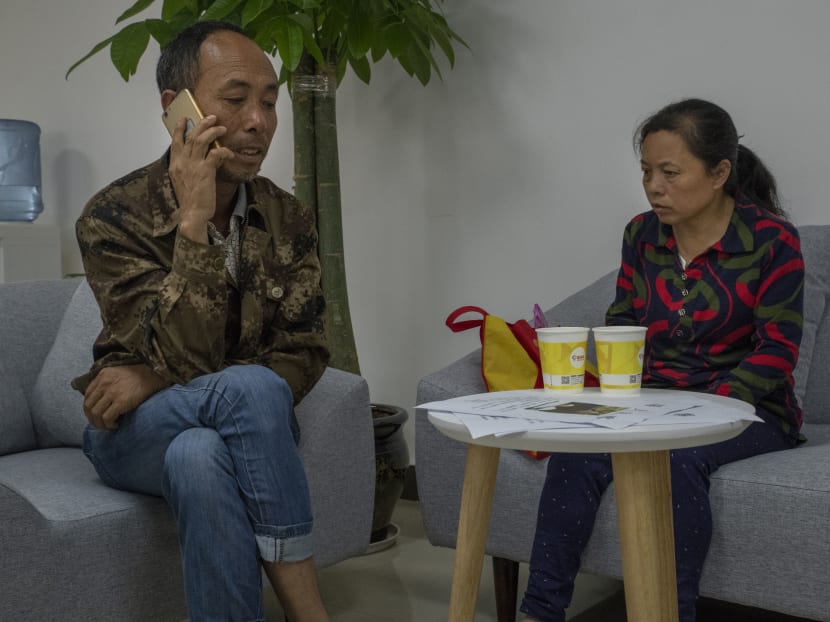
He noticed that an arrow icon appeared next to several of the text messages that he had sent daily to his son. He believes that meant those messages were delivered.
"You are the son of heaven," Mr Tang wrote in one of those messages. "Good people will help you through this calamity, but you must have the confidence and determination to survive this catastrophe."
"Child, I have destroyed you," he wrote in another one. "I haven't fulfilled the responsibility of being a father. I spent all this time trying to make money and I had no time to talk to my child."
In the three months since his son disappeared, Mr Tang has spent almost every day printing posters, talking to people who thought they had seen his son, and fielding questions from reporters.

His wife, Ms Liao, a former cleaner at a mall, bristled at questions about their search.
"Sometimes when they go out to search for him, I just sit at home and cry all day long," Ms Liao said, weeping.
Many people they approach have no interest in helping. Others are sympathetic. Zhang Ciping, a retiree and a stomach cancer survivor, was so moved by Ms Liao's story that she offered to let them stay in her apartment, rent free, the next time they were in Zhangjiajie.
"These parents are so pitiful," she said, wiping tears from her eyes.
All this time, Mr Tang had begged authorities to help. Now, he decided his next best shot was the state-run broadcaster in Zhangjiajie.
Luo Heng, the general manager for the new media section of the broadcaster, was surprised to hear that the couple still had not found their son. Didn't several readers of the broadcaster's website send in some leads?
Mr Tang said they had all turned out to be the wrong person. Mr Luo promised to rebroadcast the story and encouraged Mr Tang to go to police.
The Tangs then walked 2 miles to a police station. An officer told Mr Tang that he could not track his son's phone records because of privacy reasons.
Police, he said, could not classify this as a missing-person case because Tang Gongwei "voluntarily left home."
It was almost dusk when the Tangs returned to their rented room in an inn, next to a fish and chicken market. They were exhausted. Their savings of about US$3,000 were nearly wiped out. But their search would continue.
"He was very filial," Mr Tang said of his son. "He really did not like to bother other people." THE NEW YORK TIMES









